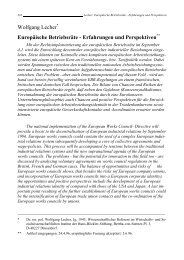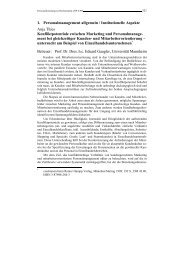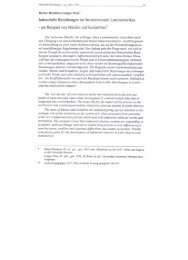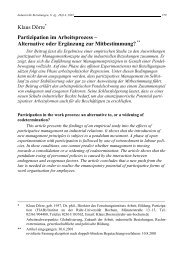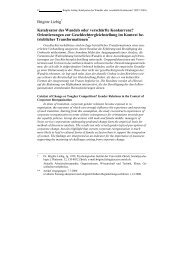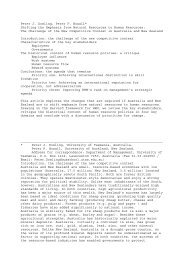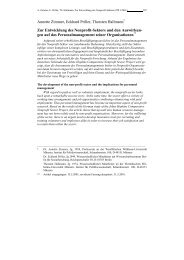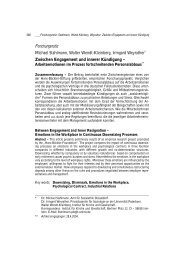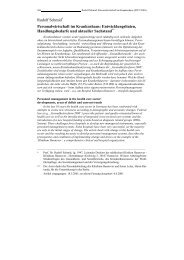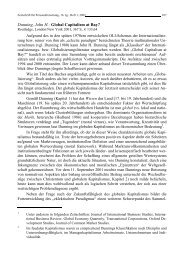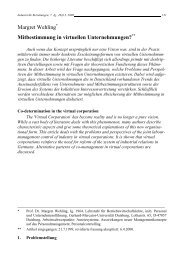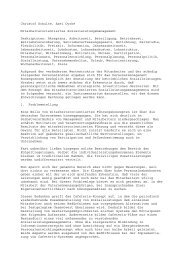1/98 - Rainer Hampp Verlag
1/98 - Rainer Hampp Verlag
1/98 - Rainer Hampp Verlag
Create successful ePaper yourself
Turn your PDF publications into a flip-book with our unique Google optimized e-Paper software.
Boštjan Zalar<br />
This rather philosophical position is not irrelevant because of the timely<br />
distance, but has to be explored within the modern challenges of the market<br />
economy. Namely, from the conclusions of Robert Solow, Nobel Prize winner<br />
for economics, we learn that the key factor for economic growth is technology,<br />
knowledge, innovation and not capital or the growth of labour force (Marshall<br />
1<strong>98</strong>9). His thesis had been proved by calculations and findings confirming that<br />
the level of productive use of knowledge is the factor determining the level of<br />
economic growth (Romer 1990; Pfeffer 1994; Becker et al. 1990). These<br />
findings are also accepted by sociologists talking about the economy of goods<br />
changing into a knowledge economy (Drucker 1993), with the intelligentsia<br />
becoming the largest class and the source of economic and social progress<br />
(Gouldner 1979). The consequence is that financial capital as a factor of<br />
production has become subordinate to intellectual capital (where the quality of<br />
social networks belongs ) and what was once called the labour as investment<br />
into the company, today means knowledge - the intellectual capital.<br />
By exchanging the classic, repetitive, physical work with intellectual work,<br />
which has taken over the role of the main production factor, it becomes obvious<br />
that profit is created by labour (intellectual capital), as well as by financial<br />
capital.<br />
Does the new legislation in Slovenia really mean a step towards the expansion,<br />
realisation and protection of the rights of economic democracy?<br />
The Constitution, the Law on Commercial Companies and the Participation of<br />
Employees in the Management Act, which we have already discussed, do not<br />
mention the right of the employee to shareownership or profit-sharing (or the<br />
right to fair remuneration) within commercial companies.<br />
At first sight, it seems that this great and important step will be taken by the<br />
LTCO, for it establishes the internal buy-out strategy as the most attractive<br />
option of privatisation. But this appearance is deceptive. The law grants the<br />
companies, having also been established by Constitutional Judge Krivic, a high<br />
degree of autonomy and brings them together in a legally regulated way in a<br />
position to look for appropriate owners (The Constitutional Court 1993, 127/II,<br />
separate opinion of Judge Krivic). It is true that the law has, through financial<br />
discounts and incentives, given an important advantage to the employees of<br />
companies, but the legal power of the LTCO is limited only within the<br />
transitional period. What will happen after the transformation is completed, is a<br />
completely open question.<br />
If it really was the aim to maintain an ownership structure characterised by a<br />
significant part of employee ownership, then a number of additional regulations<br />
would be required.<br />
It would be necessary, officially and at state level, to recognise the right of<br />
employees to shareownership or the right to share profit (and loss). An<br />
JEEMS 1/ 19<strong>98</strong> 39



